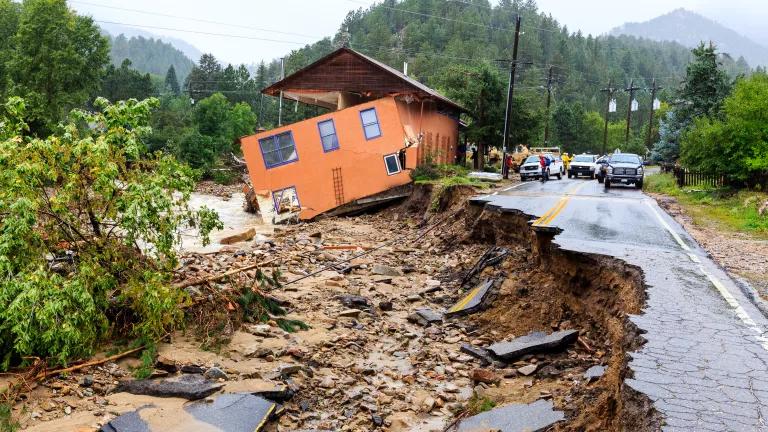Basel Committee to Incorporate Climate Risk into Banking Supervision
It should instruct supervisors to treat climate risk as an element of traditional financial risk.

The Basel Committee on Banking Supervision (the "Committee") is an international committee of central banks and banking supervisory authorities that acts as the primary global standard setter for the prudential regulation of banks and provides a forum for regular cooperation on banking supervisory matters.
Recently, the Committee has proposed revisions (the first time in more than a decade) to the Core Principles for Effective Banking Supervision (Core Principles), the de facto minimum global standards for the sound prudential regulation and supervision of banks. A key element of the proposed revisions is the explicit inclusion of climate-related financial risks.
Our comments to the Committee emphasize that incorporating climate risks into the Core Principles is of paramount importance to mitigating banks' climate-related financial risks and ensuring the stability and resilience of the global financial system. Further, the Core Principles should incorporate these risks into a broader spectrum of traditional risks beyond solely operational risks, such as credit risk, market risk, liquidity risk, and more.
The Committee plays a crucial role in guiding supervisors in the risk management process. Its efforts in this area are essential for several reasons:
- Systemic Risk Mitigation: Climate change poses significant systemic risks to the financial sector. As the regulator of banks globally, the Committee's mandate includes strengthening the financial system's stability. By incorporating climate risks into its Core Principles, the Committee can help mitigate the potential destabilizing effects of climate-related events on the financial system. Climate-related events can lead to sudden and severe financial shocks triggered (for example) physical damage or supply chain crises caused by extreme weather events. Incorporating climate risks into banking supervision helps safeguard financial stability by ensuring that banks are resilient to these shocks.
- Long-Term Risk Management: Banks are exposed to various climate-related risks, including stranded assets in carbon-intensive industries or shifts in market sentiment due to changing climate policies, are all climate-related financial risks that must be managed. Theses risks can manifest in many traditional risk areas such as credit risk, market risk, concentration risk, liquidity risk, operational risk and other types of risks. By integrating climate considerations into the Core Principles of banking supervision, the Committee encourages banks to adopt a longer-term perspective in risk management, thereby fostering sustainable banking practices.
- Global Consistency: The Committee's standards and guidelines have a significant influence on banking regulations worldwide. By incorporating climate risks into its Core Principles, the Committee helps ensure a consistent approach to climate risk management across different jurisdictions. This consistency is crucial for the effectiveness of global efforts to address climate change within the financial sector.
- Encouraging Innovation: Incorporating climate risks into banking supervision can encourage innovation in financial products and services, such as green loans, climate-related insurance, and sustainable investment options. This can help redirect capital towards environmentally sustainable activities and support the transition to a low-carbon economy.
- Adaptation and Resilience: Responding to climate change is not just about reducing emissions; it also involves adapting to the changes that are already underway. By focusing on climate risks, the Basel Committee can help ensure that banks are responsive to the physical and transitional risks associated with climate change, enhancing their resilience over the long term.
In summary, the Committee's incorporation of climate-related financial risks into the management of financial risks in the Core Principles will be essential for safeguarding financial stability, promoting sustainable banking practices, and aligning the global financial system with the challenges posed by climate change. The Core Principles should reflect the recognition that climate risks manifest as traditional financial risks, and are a material concern for the banking industry and the broader economy. Addressing them is essential for a more resilient and sustainable financial sector.



